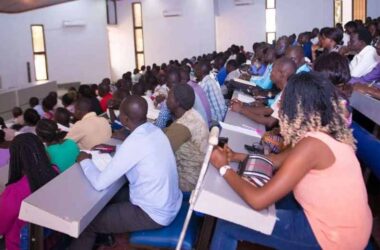By Kei Emmanuel Duku
South Sudan’s Transitional National Legislative Assembly is finally resuming today after over six-months recess. Its last scheduled reopening in April was postponed indefinitely, leaving many awaiting.
As parliament convenes, a prominent lawyer has urged policymakers to restore hope and confidence among South Sudanese citizens by fully committing to the implementation of the peace agreement.
Victor Batali Sillas, the Director of the Centre for Legal Aid and Justice (CLAJ), emphasized parliament’s vital role in upholding the nation’s democratic system of governance and its function as a law-making institution. He highlighted that its extended closure has hampered the country’s ability to oversee government performance, approve plans and policies, appropriate the budget, ratify international treaties, and summon ministers for accountability.
“Its reopening is a renewed hope for the people of South Sudan after several months of recess, and specifically at a time when the country is threatened with conflicts between the signatories to the peace agreement, which necessitated the formation of this parliament and the current legitimacy of the Government of National Unity,” said Sillas.
The legal expert noted that the resumption comes at a critical time, with South Sudan is grappling with political instability, food scarcity, insecurity, and environmental crises. These challenges, he explained, require new laws and thorough investigation by parliamentary committees to find effective solutions for the public.
Batali further explained that the public is eager to see their lawmakers actively participate in policy legislation, amend laws driven by public need, and hold the government accountable for its actions, particularly regarding national spending.
“Members of parliament should ensure that adequate resources are allocated to strengthen the law-making institution for effective legislation that promotes development and peace with transparency and accountability, and avoid manipulation and influence of the executive,” he added.
However, Batali cautioned that parliament must remain impartial, avoiding political division and corruption to reshape the country’s future and uphold South Sudan’s integrity and sovereignty. He stressed the need for parliamentary oversight on security agencies, addressing crime, promoting safety, and engaging with persons of interest.
Earlier this March, conflicts broke out in some parts of Upper Nile, Unity, and Western Equatoria States, leading to the house arrest of some leading opposition figures including Dr. Riek Machar
Policy expert Boboya James stated that before parliament fully reconvenes, all parties to the 2018 Peace Agreement – including the Sudan People’s Liberation Movement-In Opposition, the main signatory, alongside Other Political Parties – must be mobilized.
“It’s actually more critical for Parliament to now begin to think about how all its members are supposed to be mobilized to participate so that Parliament will look like the representative of the people, in accordance with the revitalized peace agreement,” Boboya said. “And they should begin to embark on critical tasks that are more needed to fully implement the peace agreement.”
According to Boboya, the South Sudan Parliament needs to address several urgent issues, including the current conflict, ongoing inter-communal clashes, and instability across various parts of the country.
He emphasized that the conflict has had a devastating impact on the lives of ordinary South Sudanese, leading to widespread food insecurity estimating that currently, about 92% of the population cannot afford food, with only 8% slightly above the poverty index, a stark contrast to previous years (2011 and 2024, where poverty indices were between 45% and 88% respectively).
“Without addressing poverty and economic conditions, it is going to create a dire situation for South Sudan,” he noted, citing recent displacement in Yei and Morobo areas as key issues needing attention.
South Sudan is currently the only country in the region operating without a parliament-approved budget. Boboya argues that upon resumption, parliament must prioritize allocating sufficient budget for critical infrastructure, such as roads connecting rural agricultural produce to urban areas, ensure transparency and equitable resource distribution.
“The national budget needs to also go into financing roads and bridges in terms of tarmacking, manning of those roads, electricity, health, and education, and creating employment for youth and women to be able to have access to better private sector and economic systems that can be able to expand the economy and our Gross Domestic Product,” he stressed.



